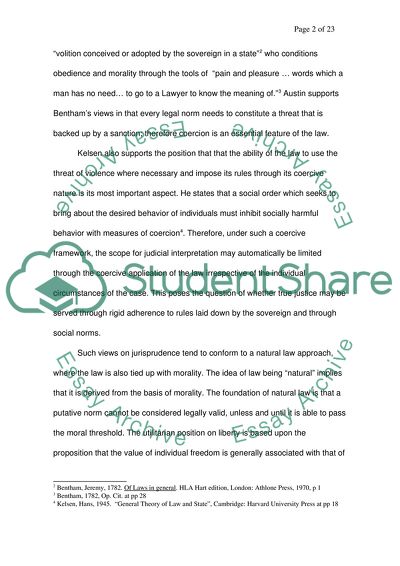Cite this document
(The Nature of Law Essay Example | Topics and Well Written Essays - 5000 words, n.d.)
The Nature of Law Essay Example | Topics and Well Written Essays - 5000 words. Retrieved from https://studentshare.org/law/1716322-major-essay-on-jurisprudence-law
The Nature of Law Essay Example | Topics and Well Written Essays - 5000 words. Retrieved from https://studentshare.org/law/1716322-major-essay-on-jurisprudence-law
(The Nature of Law Essay Example | Topics and Well Written Essays - 5000 Words)
The Nature of Law Essay Example | Topics and Well Written Essays - 5000 Words. https://studentshare.org/law/1716322-major-essay-on-jurisprudence-law.
The Nature of Law Essay Example | Topics and Well Written Essays - 5000 Words. https://studentshare.org/law/1716322-major-essay-on-jurisprudence-law.
“The Nature of Law Essay Example | Topics and Well Written Essays - 5000 Words”, n.d. https://studentshare.org/law/1716322-major-essay-on-jurisprudence-law.


